The format of A Pup Named Scooby-Doo followed the trend of the "babyfication" of older cartoon characters, which one of the show's producers would later use on Spielberg’s Tiny Toon Adventures, and though this may have annoyed fans of the classic cartoon it did bring back Fred and Velma to the show, both of whom had not appeared as regular characters since the 1970s. So, we can take that as a win, right? This particular incarnation also used the same basic formula as the original 1969 show as it had the kids forming the "Scooby-Doo Detective Agency" – that would obviously later morph into Mystery Incorporated – and where the monsters of the week would undoubtedly turn out to be a dude in a mask. That said, this tried and true formula was altered a bit as it had the pre-teen Scooby gang up against some decidedly weirder villains who had even more dubious motives. In the very first episode “A Bicycle Built for Boo!” the Green Monster who steals Shaggy’s bike simply because he needed its chain to fix his counterfeiting press.
Was going to a bicycle repair shop just not an option?
Not only was the tone and humour of A Pup Named Scooby-Doo broader and goofier, and the monsters themselves more comedic, such as a sludge monster from the Earth’s core or Chickenstein type creature, a 7-foot-tall humanoid chicken creature in the vein of Universal’s Frankenstein’s monster. It was this kind of “threat” that differentiated this show from the original Scooby-Doo, Where Are You! a show that was somewhat grounded in reality – talking dog aside – whereas A Pup Named Scooby-Doo relied on more cartoon “logic” for much of its humour. But it wasn’t just the writing that was broader as the animation style itself veered into some extreme cartoon stylized antics that was more akin to the works of Looney Tune legends Tex Avery and Joe Clampett, with characters doing wild double-takes and their eyes jumping out of their faces when encountering various monsters.“A g-g-g-g-g-ghost!”
Unlike previous incarnations, A Pup Named Scooby-Doo was more self-aware and the characters often broke the fourth wall and even played off the standard tropes. The show also relied on several running gags such as whenever Velma would say "Jinkies" someone would point out "Velma said Jinkies, it must be a clue" but more annoyingly was Fred’s constant accusing of the neighbourhood kid Red Herring (Scott Menville) of being the villain of the day despite him never ever being guilty of anything – well, except for that one time - but this was an obvious pun on the literary trope that was designed to distract the reader from identifying the real culprit, but as a joke, it got old real fast.“Let’s round up the usual suspects, and by that, I mean this guy.”
The character traits of this pre-teen Scooby gang weren’t too far off-model with the likes of Shaggy (Casey Kasem) being exactly like his older incarnation while his pal Scooby (Don Messick) was only altered by his random ability to modify his nose to search for clues, such as turning it into a radar dish-like scanner. Daphne (Kellie Martin) is a little vainer as a tween and whose job in this show seems to be that of the resident skeptic, with her catchphrase in the show being "There's no such thing as…” followed by whatever creature they were facing that week. The version of Fred (Carl Steven) in this series isn’t yet the stoic leader he'd later become, nor does he yet have the trap obsessive disorder, but his main purpose on this show was to always jumps to the wrong conclusion and offer a ludicrous hypothesis to the mystery at hand. Velma (Christina Lange) is another character who stayed relatively true to her original incarnation, being an intelligent and soft-spoken young girl with thick eyeglasses that she’d tend to lose at the most inopportune moments. She also worked as the team’s “Q” and would often have an oversized fan-propelled skateboard at the ready or her briefcase-sized mobile computer to help determine the monster of the weeks true identity.“It says here that I haven’t used my catchphrase for at least five minutes...Jinkies!”
Stray Observations:• In the episode "Dawn of the Space Shuttle Scare" we see a flashback of toddler Velma meeting Scooby-Doo, but this means Scooby-Doo has been a pup for several years. Does Scooby suffer from some form of reverse dog years?
• This show introduced us to Shaggy’s baby sister Sugie, who was Shaggy's favourite "non-puppy person in the world" and is someone I wish had been given more appearances in later Scooby-Doo cartoons as she was a very sweet character.
• I quite enjoyed the musical interludes where the Scooby gang would dance around to a catchy original song.
• Though this particular run returned to the “Guy in a Mask” formula the episode “Ghost Who Comes to Dinner” is the one episode that did have an actual ghost.
• Shaggy’s love of the superhero duo of Commander Cool and his faithful canine sidekick Mellow Mutt was an obvious homage to the Blue Falcon and Dynomutt.
• A live-action puppet version of this series called Scooby-Doo! Adventures: The Mystery Map was released in 2013.
• The Tex Avery style of the show lent itself to some rather bizarre moments, like Shaggy and Scooby’s skeleton’s popping out and running away.
There’s a little case of nightmare fuel for you.
As a prequel series, A Pup Named Scooby-Doo was a breath of fresh air – also giving us a break from Scrappy-Doo – and the Looney Tune style of broad humour and animation gave the writers and artists freer rein when it came to coming up with fun adventures for our pre-teen sleuths to solve. As for the mysteries themselves, well the less said about them the better as pretty much the first person you suspect will most likely be the culprit. We’re not talking Agatha Christie here. The animation not only benefited from looser restrictions but it was also technically better than many of the previous incarnations and though older audiences may not be thrilled to see a Muppet Babies version of our heroes there was enough gags and silliness to give me a chuckle on more than one occasion.
Question: Was the film Scoob! be based on A Pup Named Scooby-Doo?
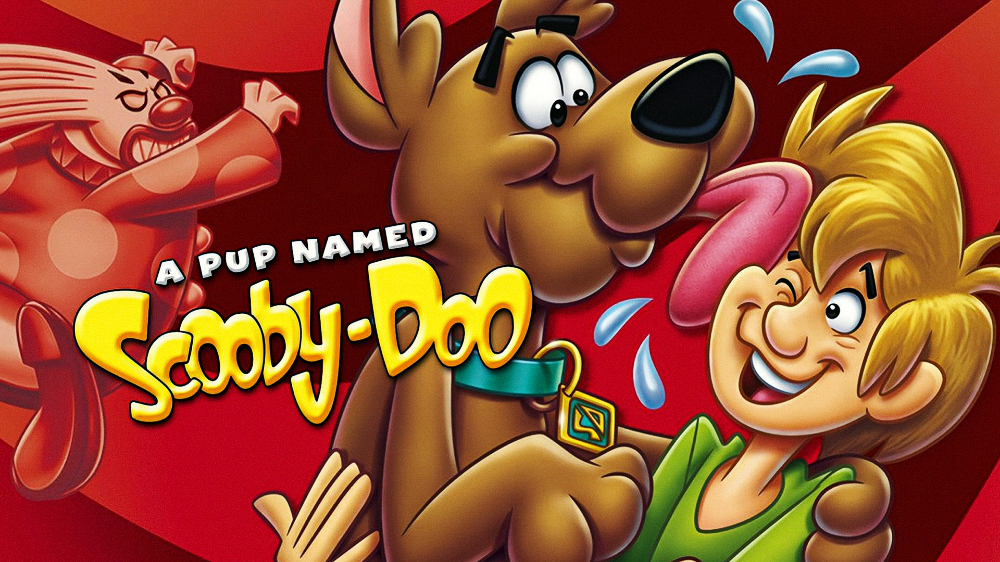
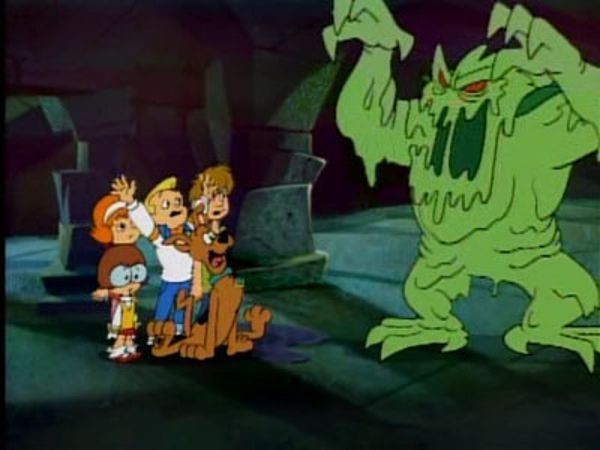
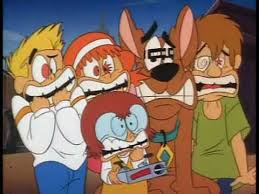
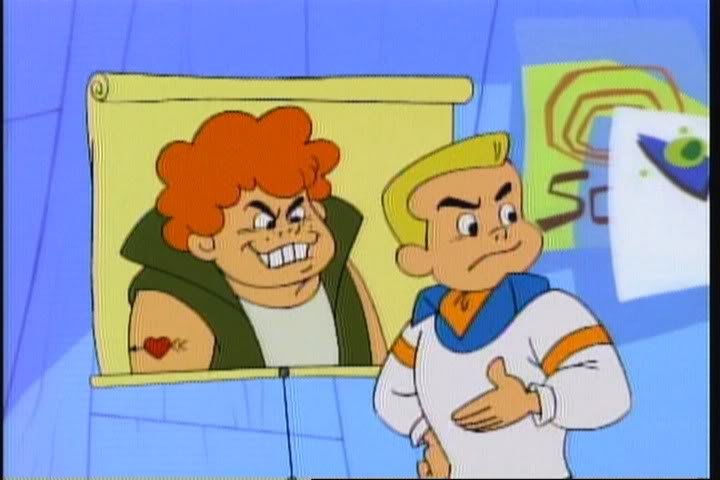
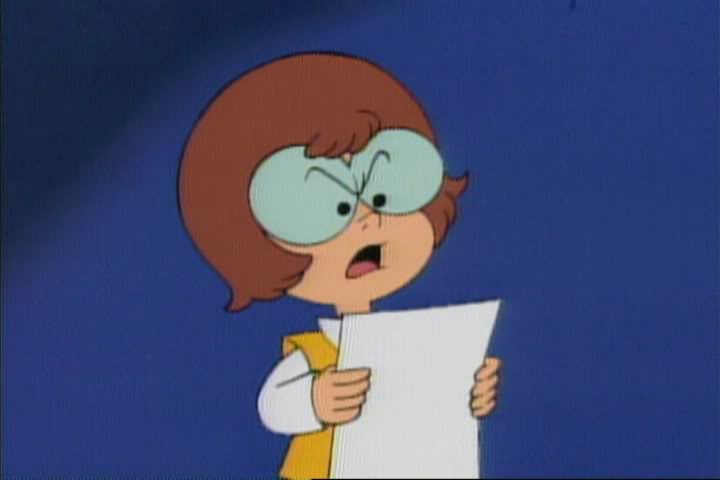
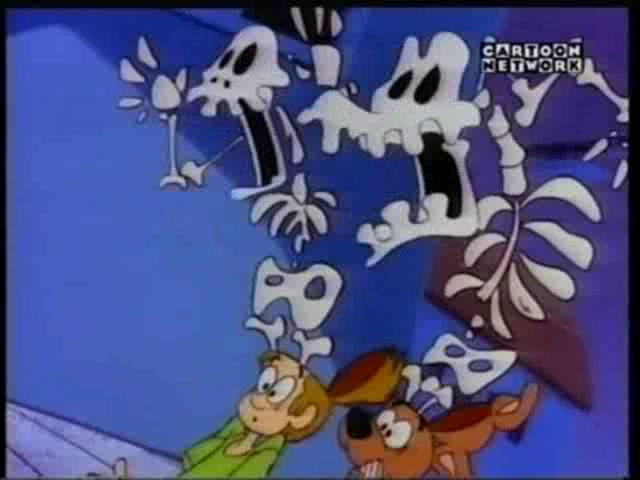
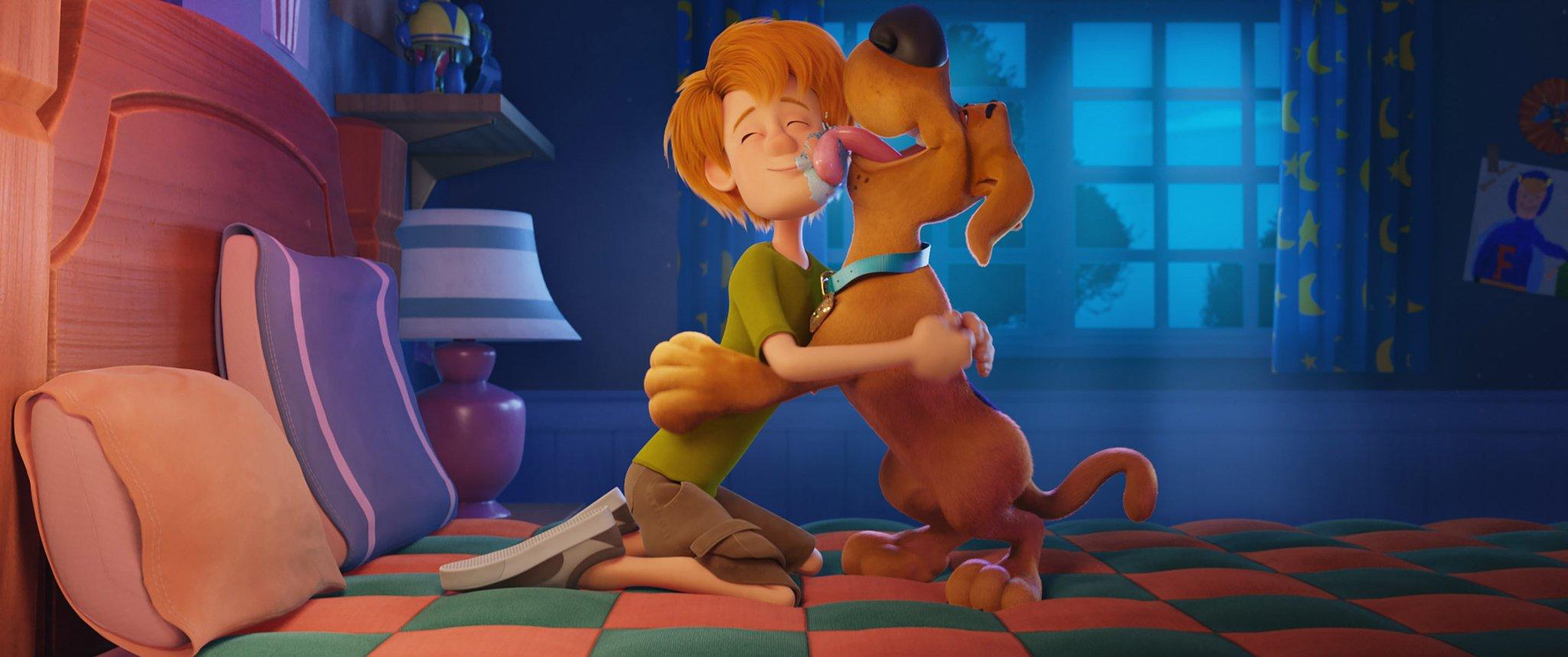

No comments:
Post a Comment